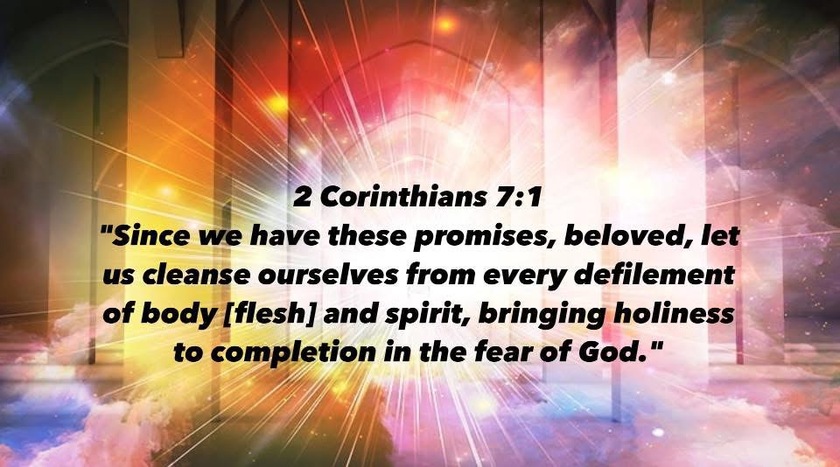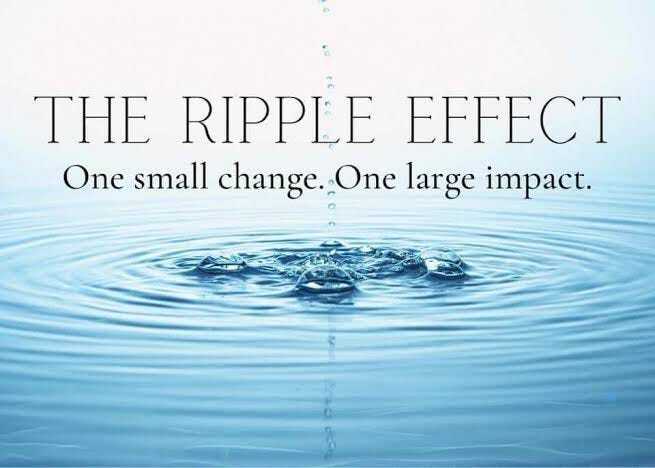From Eden’s Fall to Eternal Life: The Journey of Grace and Choice
Romans 3:10-11
as it is written:
"None is righteous, no, not one; no one understands; no one seeks for God."
Paul is quoting the Psalmist who is indicting mankind's condition apart from God. Drawing from Old Testament passages like Psalm 14 and Ecclesiastes 7, Paul underscores a profound truth about humanity: on our own, we’re all spiritually adrift. No one is inherently "good enough" in God’s eyes. Not the religious elite, not the everyday person, not even the ones we might admire for their moral efforts. Whether you're a Jew or Roman Catholic, you're seeking to balance your life with good works that tip the scales to outnumber your evils. What Paul is unmasking for us is the truth that Righteousness isn’t something we manufacture; it’s a divine standard we universally fall short of.
This isn’t meant to crush us but to liberate us. If no one understands or seeks God naturally, it highlights our deep-seated need for divine intervention. Our hearts are inclined toward self-reliance, distractions, and lesser pursuits, often mistaking busyness or good deeds for true spiritual connection. People use "the law" to fortify their own self-righteousness. Ecclesiastes 7:20 echoes this, reminding us that no one on earth is righteous without sin. In Romans, Paul applies this to everyone, Jew, Gentile, believer, or skeptic, showing that the law and rituals can’t save us; they only expose our shortcomings.
Jesus steps in as the one who is righteous, understanding, and seeking us out (Luke 19:10). He doesn’t demand a balanced scale; He offers a complete exchange—our sin for His perfection through faith. Jesus taught us that the law was given in a spiritual sense, not a physical sense. In His Sermon on the Mount (Matthew 5:21-48), He deepened the commandments beyond our outward actions to the intentions of the heart, anger as murder, lust as adultery. This spiritual dimension reveals why no one can claim righteousness through mere compliance; the law probes our inner lives, where we all fall short.
Paul’s message in Romans builds on this, emphasizing that the law’s purpose is to lead us to Christ, not to provide a ladder we can climb up on our own. If, therefore, we’re all in the same boat, adrift without God, then grace becomes our only anchor.
God is faced with a problem. He created a self-governing creature to fellowship with Him. One thing was necessary: that this creature would choose to use that freedom to express his love for God willingly and freely. This divine design for relationship, rooted in free will, highlights the beauty of genuine love, but it also introduces the risk of rejection through sin. This is why there had to be the opportunity for sin, (the temptation of tree of the knowledge of good and evil). From the Garden of Eden onward (Genesis 2:16-17), humanity’s autonomy allowed for choice, yet as Romans 3 reveals, we’ve consistently chosen paths away from God. No one seeks Him on their own because sin has warped our desires, turning freedom into bondage. But God’s solution isn’t coercion; it’s redemption through Christ, who restores our ability to choose Him truly (John 6:44).
How?
How does redemption through Christ cure the problem of sin?
In the same way that we might use the essence of the disease to fashion a vaccine against that disease, God uses the knowledge of the gospel to treat the problem caused by the tree of the knowledge of good and evil. This "knowledge", is often interpreted not as just mere intellectual information, but as experiential awareness gained through disobedience, leading to moral autonomy apart from God.
But is redemption primarily about countering that disease with the vaccine "new information" via the gospel? Partially yes, the gospel is the transformative message, the delivery method, but biblically, it’s far more profound. Redemption through Christ is the cure for sin’s problem not just the syringe by which we are informed, but by atoning for us, justifying us, and regenerating our hearts through His sacrificial work, through his blood, and the Holy Spirit’s power. Jesus, as the sinless substitute, takes on our sin and its consequences on the cross (2 Corinthians 5:21), freeing us from sin’s bondage. This act delivers us from the law’s curse (Galatians 3:13), which demanded perfection, and instead offers justification, being declared righteous before God through faith
Romans 3:24
"and [all] are justified by his grace as a gift, through the redemption that is in Christ Jesus"
It’s not abstract; it’s a divine transaction where Christ’s death satisfies justice, curing the guilt and power of sin. The gospel announces this redemption: Christ’s life, death, and resurrection conquer sin (1 Corinthians 15:3-4). While it provides "new information" countering Eden’s deception, revealing God’s love and our need for surrender, it’s empowered by the Holy Spirit, who convicts (John 16:8) and regenerates, giving us new hearts capable of seeking God (Ezekiel 36:26; Titus 3:5). Faith in this message activates the cure, forgiving sins and granting eternal life. As we believe, we’re no longer slaves to sin but freed to live righteously (Romans 6:6-7).
So is that the end of the story?
"All" are justified in Jesus Christ?
No, that’s not quite the end of the story, far from it. The narrative of redemption in Scripture unfolds further, emphasizing that while God’s offer of justification through Christ is extended to all humanity without distinction (Jews, Gentiles, everyone), it’s not automatically applied to every individual regardless of response.
At first glance, the parallel structure, "all have sinned… [all] are justified", might suggest a blanket justification for everyone. Some interpreters, particularly in universalist circles, argue this supports the idea that just as sin affects all, so does justification, ultimately leading to the salvation of every person. The gospel, however, doesn’t teach that everyone is justified irrespective of faith; instead, it highlights the universality of sin and the availability of grace through belief in Christ. Redemption doesn’t stop at forgiveness; it initiates sanctification (growing in holiness) and promises glorification (complete freedom from sin’s presence, Revelation 21:4). It holistically reverses Eden’s fallout: restoring fellowship with God (Ephesians 2:18), breaking sin’s dominion, and offering divine healing in body, soul, and spirit as part of Christ’s comprehensive work.
Fact of the matter is, God’s grace in Christ makes justification accessible to anyone who turns to Him in faith. It's akin to that tree in the garden long ago. The difference this time being, that in Christ we have both the tree of the knowledge of good and evil [choice] and the Tree of Life [Salvation from sin death].
The Tree of Life stands as one of the most profound and recurring symbols in the Bible, weaving through the narrative from creation to consummation. It represents divine sustenance, eternal life, wisdom, and ultimate restoration, serving as a bridge between humanity’s fall and God’s redemptive plan. Unlike the Tree of the Knowledge of Good and Evil, which embodies choice and the entry of sin, the Tree of Life points to God’s gift of perpetual vitality, both physical and spiritual.
The Tree of life symbolizes complete communion with God, producing divine effects.
Proverbs expands the Tree of Life metaphorically, linking it to divine wisdom.
Proverbs 3:13-18 declares,
"Blessed are those who find wisdom… She is a tree of life to those who take hold of her; those who hold her fast will be blessed"
This ties wisdom to the fear of the Lord (Proverbs 9:10), portraying it as life-giving. It’s not mere knowledge but relational insight from God, producing effects like clarity in decision-making and protection from folly. Embracing wisdom yields blessedness, inner peace, prosperity, and long life (Proverbs 3:16-17). As a "tree," it bears fruit of understanding, nourishing the soul much like physical food sustains the body.
And this divine tree enables righteousness. Proverbs 11:30 states,
"The fruit of the righteous is a tree of life, and the one who is wise saves lives".
Here, the tree’s effects manifest through godly living. Righteousness producing life-giving "fruit" that benefits others, saving souls from spiritual death through example and evangelism. And this life-giving fruit produces healing through fulfilled hope. Fulfilled hope acts as an emotional and spiritual balm, healing "sick" hearts burdened by disappointment.
Reflections:
Reflect on a time when you relied on your own "good works" to feel worthy before God. How does Paul’s message in Romans 3 challenge that approach, and what would it look like to embrace grace instead?
Consider the symbolism of the Tree of Life in your own spiritual journey. In what areas of your life do you sense God’s invitation to deeper communion, and how might yielding to the Holy Spirit produce fruits like wisdom or healing?
Ponder the role of free will in Eden and today. Where do you see sin warping your desires, and how can faith in Christ’s redemption restore your freedom to choose God willingly?
Prayer:
Heavenly Father, thank You for revealing our need and providing redemption through Christ. May Your grace draw us into deeper communion with you daily, bearing the Tree of Life’s fruits in our lives. In Jesus Christ's Holy name, Amen.




















